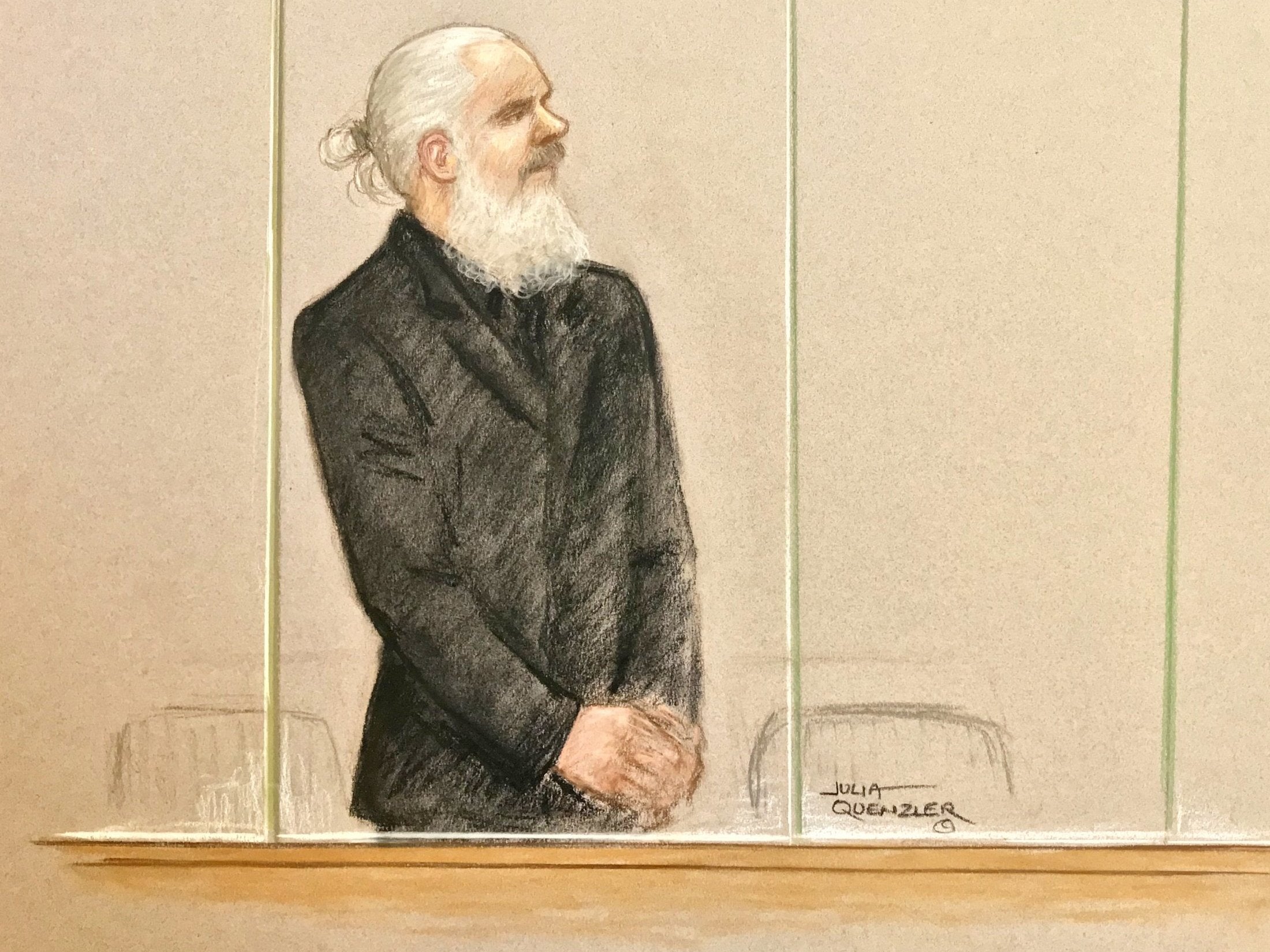Julian Assange faces years in UK prison during battle against US extradition
WikiLeaks founder to serve prison sentence for skipping bail and then remain in custody during lengthy proceedings
Julian Assange faces years in a British prison after his lawyers vowed to fight the WikiLeaks founder’s extradition to the US.
Assange was forcibly removed from the Ecuadorian embassy on Thursday after seven years, with police arresting him on a US extradition warrant, as well as for breaching bail.
Hours later the 47-year-old was found guilty of the bail charge relating to his entry to the embassy in 2012, as he sought asylum to avoid being sent to face rape allegations in Sweden.
Prosecutors in Stockholm dropped the investigation in 2017 because they “could not advance” while Assange remained in the embassy, but are now considering reopening the investigation – potentially sparking an extradition row with the US.
Speaking outside Westminster Magistrates’ Court, where a judge branded Assange a “narcissist”, his lawyer said he would fight any move to transfer him to American authorities.
“Since 2010 we’ve warned that Julian Assange would face extradition to the US for his publishing activities. Unfortunately, today we have been proved right,” Jennifer Robinson said.
“This sets a dangerous precedent for all media organisations and journalists in Europe and around the world.”
Mr Assange could serve up to six months in a British prison for the bail offence, and his previous battle against extradition to Sweden took 18 months.
Lawyers say the new fight could last for years, with hearings requiring evidence from the US and expert testimony amid wrangling over Assange’s human rights and health.
Anna Bradshaw, partner at Peters and Peters, said the US had so far launched a provisional extradition request and the full details would have to be received before any hearing.
“How long the hearing takes depends entirely on the arguments Assange makes,” she told The Independent. “I suspect he will make any argument available to him under the sun, and there will no doubt be adjournments … it could drag on.”
Senior partner Michael O’Kane said that if Sweden reopens its rape investigation, a British judge will have to decide whether to send Assange there or to the US.
“If the Swedes come in and say ‘we still want him to come back’ it’s probable that they would take priority because they asked first and they can use the European Arrest Warrant, which is quicker,” he added.
“I would anticipate that he will remain in custody for the duration of his extradition proceedings.”

Speaking in the House of Commons, Sajid Javid said proceedings would begin “according to the courts’ timetable” and full extradition papers must be released within two months.
“A full extradition request would have to be certified by the Home Office before being submitted to the court, after which extradition proceedings would begin,” the home secretary added.
Diane Abbott, the shadow home secretary, was criticised for saying that Assange was “being pursued not to protect US national security, but because he has exposed wrongdoing by US administrations and their military forces”.
Mr Javid called her response “astounding” and added: “There is no one in this country who is above the law.”
“The UK’s criminal justice system is one in which rights are protected and, contrary to what Mr Assange and his supporters may claim, he and his legitimate interests will be protected,” he said.
Mr Javid said the Metropolitan Police had received a “formal written invitation signed by the Ecuadorian ambassador” to remove Assange, following a police operation to guard the embassy that had cost £13.2m by 2015.
A Downing Street spokesperson denied claims the UK lobbied Ecuador to stop protecting Assange but said there had been “a sense of dialogue with the Ecuadorian government from the onset”.
The Ecuadorian ambassador told Assange his political asylum was being revoked shortly before 10am on Thursday, just half an hour before he was filmed being dragged out of the embassy and into a police van.
His Ecuadorian citizenship has also been suspended, with the country’s president saying he had “violated norms” by intervening in other state’s affairs.
”The patience of Ecuador has reached its limit on the behaviour of Mr Assange,” Lenin Moreno said, as other officials accused Assange of acting “aggressively” towards staff and smearing faeces on the walls of the embassy.
American authorities have charged Assange over obtaining classified information from former US Army intelligence analyst Chelsea Manning, which revealed war crimes in 2010.
If convicted of “conspiracy to commit computer intrusion” he faces a maximum penalty of five years in prison, but sources told CNN that officials expect to bring additional charges.
The American political and military establishment was originally shaken by leaked diplomatic cables and battlefield reports and footage from Iraq and Afghanistan.
WikiLeaks came under fresh scrutiny for releasing Democratic emails hacked by Russian operatives, which hit Hillary Clinton’s election chances.
Assange’s transfer to the US would open the possibility of him being questioned by committees investigating alleged Russian interference in the 2016 vote.
Donald Trump repeatedly said he “loved” WikiLeaks during his election campaign, but on Thursday claimed “it’s not my thing” and “I know nothing about WikiLeaks”.

